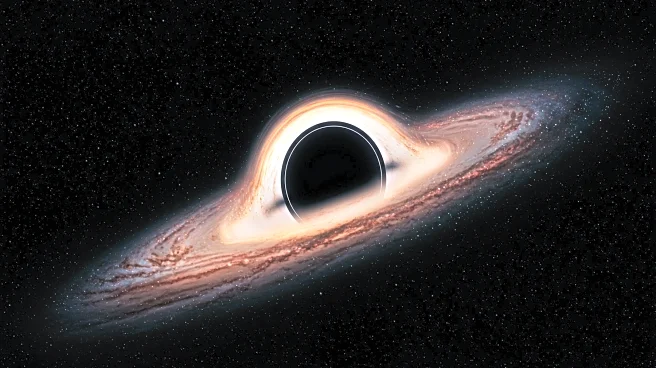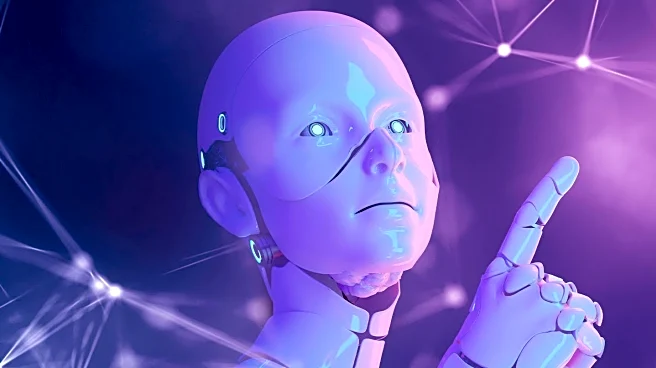What is the story about?
What's Happening?
A collaboration of researchers has released new data suggesting that black holes may be the engines behind the universe's dark energy. The study, published in Physical Review Letters, uses data from the Dark Energy Spectroscopic Instrument (DESI) to propose that black holes could be tiny bubbles of dark energy, influencing the universe's expansion. This hypothesis links the rate of dark energy production to star formation, offering new insights into the mass of neutrinos and the universe's matter budget.
Why It's Important?
The findings challenge the traditional understanding of dark energy as a constant force, suggesting it changes over cosmic time. This could reshape theories about the universe's expansion and the role of black holes in cosmic evolution. The study also provides a new method for measuring neutrino masses, potentially resolving discrepancies in current models. These insights could have significant implications for cosmology and particle physics, influencing future research and theoretical frameworks.
What's Next?
Further research will focus on testing the cosmologically coupled black hole hypothesis and its implications for dark energy and neutrino masses. The DESI collaboration plans to continue mapping the universe's large-scale structure, providing more data to refine these theories. Researchers may also explore the potential for black holes to convert stellar matter into dark energy, offering new perspectives on cosmic evolution.
Beyond the Headlines
The study highlights the importance of interdisciplinary collaboration in addressing complex scientific questions. By integrating data from DESI with theoretical models, researchers are able to explore new hypotheses and challenge established paradigms. This approach may inspire further studies into the nature of dark energy and its role in the universe's expansion.















